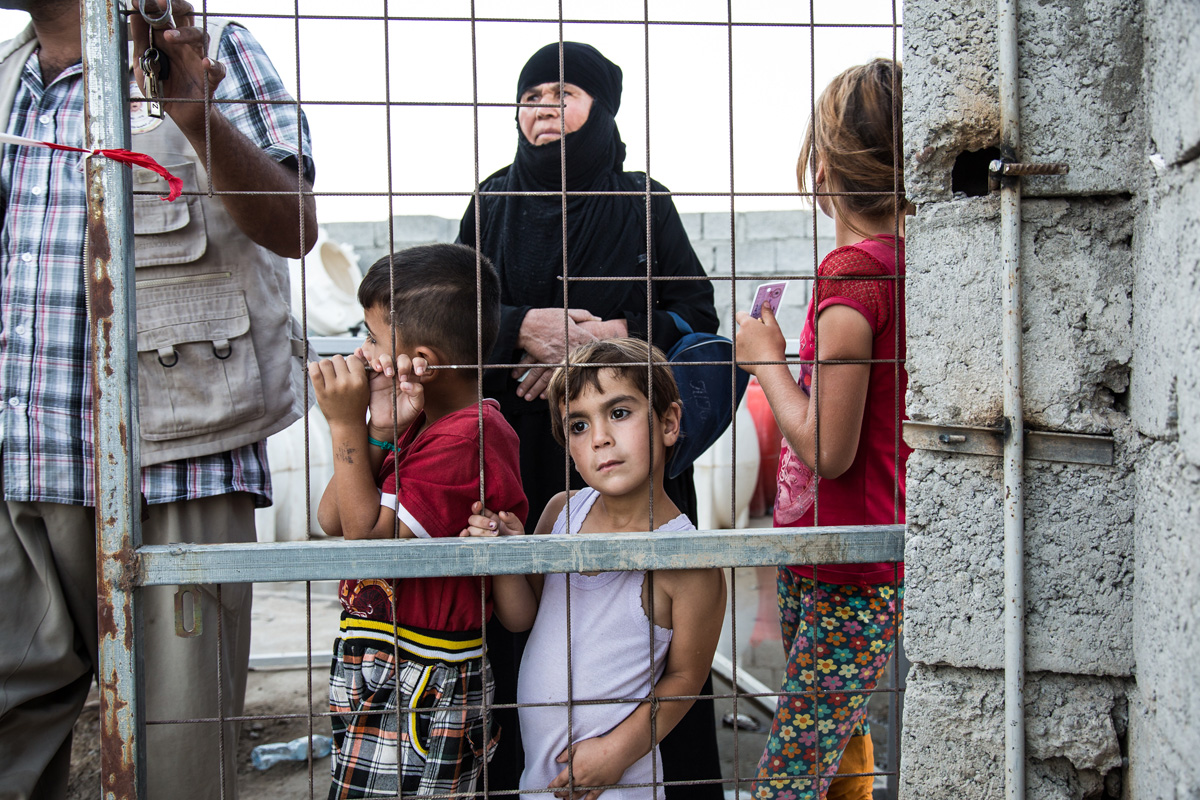Blog Home > prevention
-

EU Releases Prevention of Mass Atrocities Assessment
March 13, 2013
The Task Force on the European Union Prevention of Mass Atrocities delivered its assessment of the strengths and weaknesses of the EU’s ability to respond to mass atrocities. This effort in many ways parallels the work of the Museum co-sponsored Genocide Prevention Task Force (GPTF), which in 2008 put forward a blueprint for U.S. policymakers to detect, prevent and respond to genocide and mass atrocities.
-

Museum Hosts Expert Panel on Incitement and Free Speech
February 11, 2013
The Museum co-sponsored a panel discussion about how to address inflammatory language with policies and practices that do not infringe on free speech.
-

White House Signs New Law to Help Track Down Individuals Sought by ICC
January 15, 2013
President Obama today signed legislation expanding the State Department’s Rewards for Justice program to give the Secretary of State the authority to offer a reward for information leading to the arrest or conviction of anyone wanted by any international tribunal for genocide or other serious human rights violations.
-

Debating R2P: Can It Make a Difference?
December 17, 2012
On December 13 at the 92nd Street Y in New York City, the Museum co-sponsored a lively discussion about the Responsibility to Protect, or R2P, the emerging international doctrine aimed at protecting civilians from genocide and other forms of mass atrocities.
-

“The World’s Next Genocide”
November 16, 2012
In a New York Times op-ed, Simon Adams, executive director of the Global Centre for the Responsibility to Protect (external link), discusses the potential for genocide to unfold in Syria. Adams warns that as the current conflict intensifies, the risk increases of a violent backlash against Alawites and other minorities. He calls on governments to take decisive action to prevent further crimes against humanity from being committed, and to put an end to impunity for such crimes by engaging the International Criminal Court to ensure that perpetrators are held accountable.
-

Failure to Act: UN Releases Report Examining its Conduct During Final Days of Sri Lankan Conflict
November 16, 2012
A UN internal review panel released a report (external link, PDF) highly critical of the organization’s actions during the final five months of the conflict in Sri Lanka between the government and separatist rebels. During that period, January—May 2009, thousands of civilians were killed and wounded as government forces advanced on the stronghold of the Liberation Tigers of Tamil Eelam (LTTE)—a group designated as a terrorist organization by the US and other governments. The Sri Lankan Army’s advance and the LTTE’s use of civilians as human shields resulted in hundreds of thousands of people being caught between the warring parties. The report examines the failure of various UN bodies to adequately respond to the crisis as the human toll mounted, and evidence emerged of potential violations of international law by both parties.
-

Preventing Genocide: An Interview with UN Ambassador Susan Rice
November 6, 2012
Video: US Permanent Representative to the United Nations Susan Rice discusses the work the United Nations and the US government are doing to better prevent genocide and mass atrocities.
-

The Tech Challenge for Atrocity Prevention
October 15, 2012
USAID and Humanity United have launched the Tech Challenge for Atrocity Prevention, an initiative calling for innovative tech tools and solutions—big and small—to make advances in preventing atrocities.
-

What Do Americans Think About Preventing Genocide?
July 24, 2012
Two thirds of Americans believe that genocide is preventable, and almost 70 percent think the United States should act to prevent or stop genocide and mass atrocities in other parts of the world, according to a new poll
-

Can We End Genocide in the 21st Century?
July 10, 2012
Sixty-seven years after the Holocaust, genocide and crimes against humanity continue, as repressive regimes and cruel perpetrators target and kill innocent people around the world because of who they are. On July 24, 2012 the Museum will host a forward looking symposium to explore what can be done to prevent these atrocities in the future.


